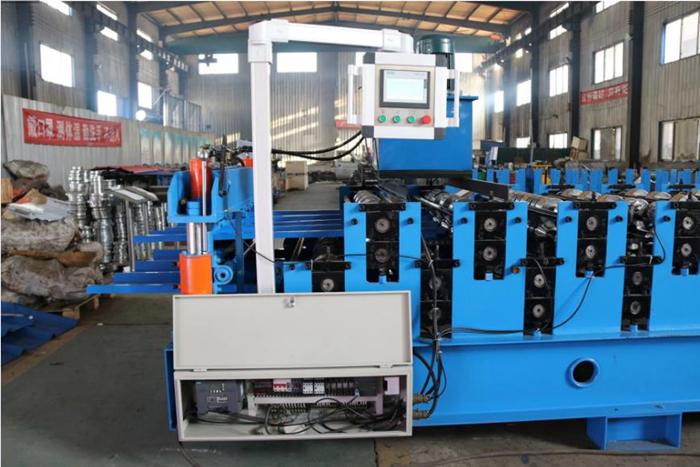custom sheet metal roll forming machines for sale
Understanding Custom Sheet Metal Roll Forming Machines for Sale
In today’s manufacturing landscape, the demand for specialized and efficient production methods has never been higher. One such method that has gained immense popularity is roll forming, particularly for sheet metal. Custom sheet metal roll forming machines are increasingly sought after by businesses looking to enhance their production capabilities and reduce costs. This article explores the significance of these machines and what to consider when purchasing one.
Roll forming is a continuous bending operation in which a long strip of metal, typically pre-cut to a desired width, is fed through a set of rollers to create specific cross-sectional profiles. This process is particularly useful for producing components used in various industries, including automotive, construction, and appliances. The ability to create custom profiles allows manufacturers to meet unique specifications and customer demands, making roll forming an essential technology in modern manufacturing.
When considering the purchase of a custom sheet metal roll forming machine, there are several factors to take into account
1. Customization Capabilities One of the primary reasons companies opt for custom roll forming machines is the ability to produce unique shapes and sizes tailored to specific applications. It is crucial to assess the machine’s capacity for customization, including the range of profiles it can create. Manufacturers should seek machines that offer flexibility in design, allowing for easy adjustments to meet varying project requirements.
custom sheet metal roll forming machines for sale

2. Material Compatibility Different projects may require different types of materials, such as aluminum, steel, or even plastic composites. It is essential to ensure that the roll forming machine can accommodate the materials your business commonly uses. Compatibility affects the quality of the final product, the efficiency of the manufacturing process, and the overall cost.
3. Production Efficiency The efficiency of a roll forming machine directly impacts productivity. Factors such as speed, power consumption, and the time required for setup and changeovers should be evaluated. Machines equipped with advanced technologies, such as automated controls and real-time monitoring systems, can significantly enhance production efficiency and reduce downtime.
4. Durability and Maintenance Investing in a high-quality roll forming machine is a long-term investment. It is vital to consider the build quality of the machine, as well as the ease of maintenance. Machines made from durable materials will withstand the rigors of industrial use and require less frequent repairs. Additionally, manufacturers should consider the availability of spare parts and the support services offered by the machine supplier.
5. Cost Considerations While it is tempting to opt for the cheapest option available, it is essential to consider the total cost of ownership. This includes not only the initial purchase price but also operating costs, maintenance expenses, and potential production losses. Investing in a high-performance machine may yield better overall returns by reducing scrap rates and increasing production output.
In conclusion, custom sheet metal roll forming machines play a vital role in the manufacturing sector, enabling businesses to produce a wide range of bespoke components efficiently. By carefully evaluating customization capabilities, material compatibility, production efficiency, durability, and overall costs, manufacturers can make informed decisions when purchasing these machines. With the right roll forming equipment, businesses can enhance their productivity, meet customer demands, and ultimately gain a competitive edge in the marketplace. As the industry continues to evolve, investing in advanced roll forming technology will be vital for future success.
-
Roof Panel Machines: Buying Guide, Types, and PricingNewsJul.04, 2025
-
Purlin Machines: Types, Features, and Pricing GuideNewsJul.04, 2025
-
Metal Embossing Machines: Types, Applications, and Buying GuideNewsJul.04, 2025
-
Gutter Machines: Features, Types, and Cost BreakdownNewsJul.04, 2025
-
Cut to Length Line: Overview, Equipment, and Buying GuideNewsJul.04, 2025
-
Auto Stacker: Features, Applications, and Cost BreakdownNewsJul.04, 2025
-
Top Drywall Profile Machine Models for SaleNewsJun.05, 2025








